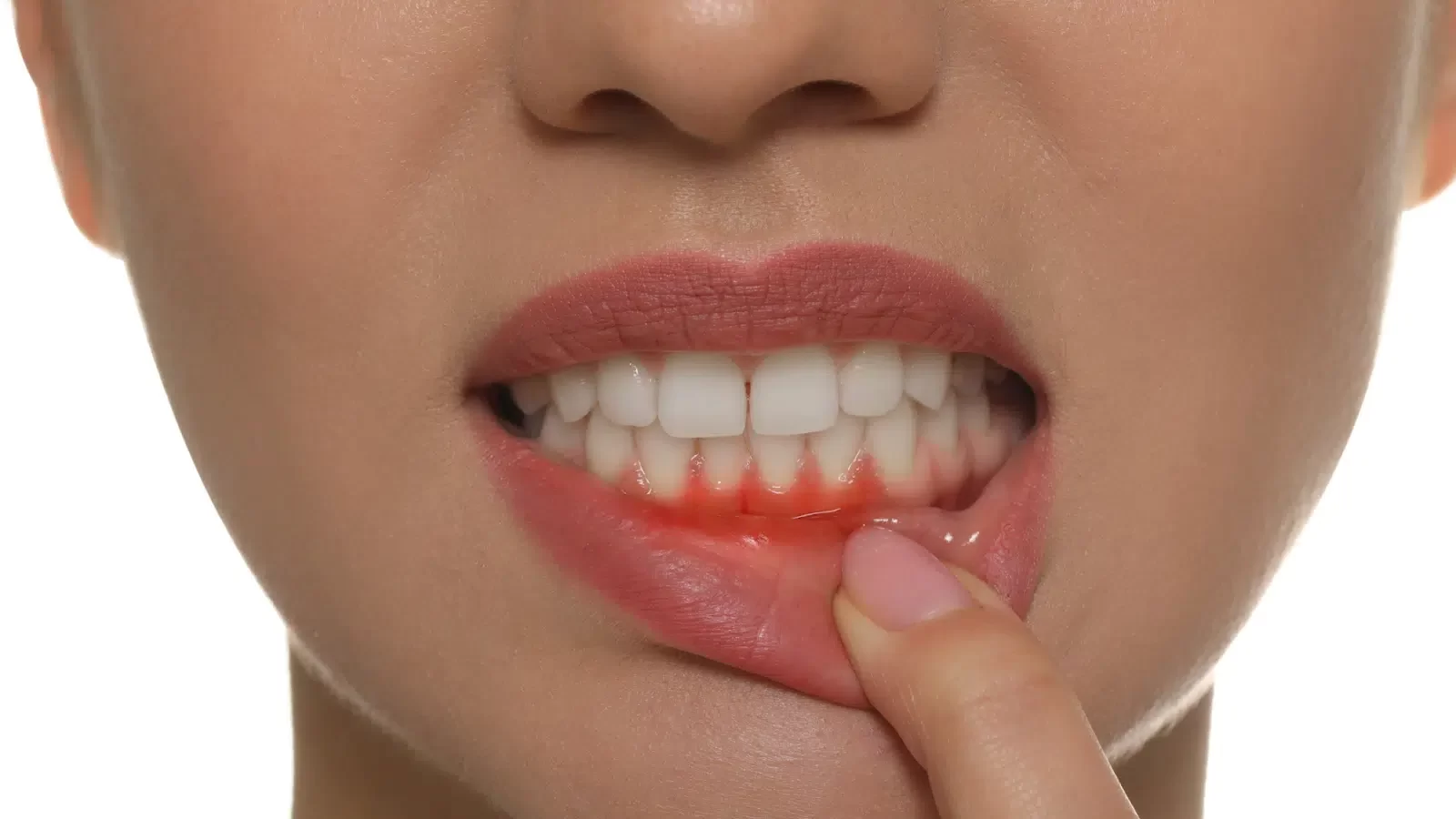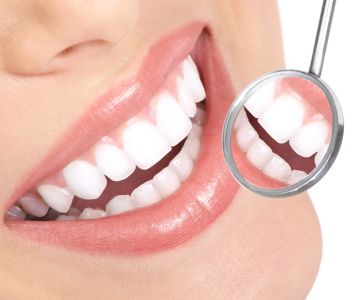
Signs of a Gum Infection and When to See a Dentist: Comprehensive Guide
- Understanding Gum Infections
- Common Signs of Gum Infection
- When to See a Dentist
- Real-Life Stories: Recognizing Gum Infections
- Expert Tips for Preventing Gum Infections
- Where to Learn More About Gum Health
Understanding Gum Infections
Gum infections, also known as periodontal diseases, are serious oral health issues that can lead to tooth loss and other health complications if not addressed promptly. These infections occur when bacteria build up on the teeth and gums, causing inflammation and damage to the supporting structures of the teeth. Understanding the nature of gum infections is crucial for early detection and effective treatment.
Gum infections typically start with gingivitis, a mild form of gum disease characterized by red, swollen gums that may bleed during brushing or flossing. If left untreated, gingivitis can progress to periodontitis, a more severe condition that affects the bone and connective tissue supporting the teeth. This progression highlights the importance of recognizing early signs and seeking professional dental care.
Common Signs of Gum Infection
Identifying the signs of a gum infection and when to see a dentist is essential for maintaining oral health and preventing more severe complications. Here are some of the most common signs to watch out for:
1. Red, Swollen, or Tender Gums
Healthy gums are typically firm and pink. If your gums appear red, swollen, or feel tender to the touch, it could be a sign of inflammation caused by a gum infection. This is often one of the first indicators that something is wrong with your oral health.
2. Bleeding Gums
Bleeding gums, especially during brushing or flossing, are a common symptom of gum infection. While occasional bleeding can occur, frequent or excessive bleeding is a cause for concern and should be evaluated by a dentist.
3. Persistent Bad Breath
Persistent bad breath, also known as halitosis, can be a sign of a gum infection. The buildup of bacteria in the mouth produces unpleasant odors that are difficult to eliminate with regular brushing alone.
4. Receding Gums
Receding gums, where the gum line pulls back from the teeth, can expose more of the tooth and lead to increased sensitivity. This is a sign that the gum infection is progressing and affecting the supporting structures of the teeth.
5. Loose or Shifting Teeth
If you notice that your teeth are becoming loose or shifting position, it may indicate that the bone supporting your teeth is being damaged by a gum infection. This is a serious condition that requires immediate dental attention.
When to See a Dentist
Knowing when to see a dentist is crucial for preventing the escalation of gum infections. Early intervention can halt the progression of the disease and restore gum health. Here are specific instances when you should schedule a dental appointment:
1. Experiencing Any of the Common Signs
If you notice any of the common signs of a gum infection, such as red or swollen gums, bleeding during brushing, persistent bad breath, or receding gums, it's important to see a dentist promptly. Early detection and treatment can prevent more severe complications.
2. Noticing Changes in Your Oral Health Routine
Changes such as difficulty in brushing or flossing, or if you find that your teeth are more sensitive than usual, can indicate underlying gum issues. Consulting with a dentist can help identify and address the root cause of these changes.
3. Experiencing Pain or Discomfort
While gum infections can sometimes be painless in the early stages, progressing infections often cause pain and discomfort. If you experience persistent gum pain, it's essential to seek dental care to alleviate the discomfort and treat the infection.
4. Family History of Gum Disease
If you have a family history of gum disease, you may be at a higher risk of developing gum infections. Regular dental check-ups can help monitor your gum health and catch any potential issues early.
Real-Life Stories: Recognizing Gum Infections
Real-life stories can provide valuable insights into the importance of recognizing the signs of a gum infection and when to see a dentist. Consider the story of Emily, a young professional who ignored her swollen gums, attributing it to stress. Over time, her symptoms worsened, leading to severe gum disease and tooth loss. It wasn't until she sought dental care that she was able to manage the infection and prevent further damage.
Similarly, Mark, an avid athlete, experienced persistent bad breath and bleeding gums but delayed visiting a dentist due to his busy schedule. Eventually, the gum infection impacted his overall health, causing frequent headaches and decreased performance in his sport. These stories highlight the critical need for timely dental visits when experiencing any signs of gum infections.
Expert Tips for Preventing Gum Infections
Preventing gum infections is key to maintaining both oral and overall health. Here are some expert tips to help you keep your gums healthy and prevent infections:
1. Maintain a Consistent Oral Hygiene Routine
Brush your teeth at least twice a day and floss daily to remove plaque and prevent the buildup of bacteria that can lead to gum infections. Using an antiseptic mouthwash can also help reduce bacterial growth and maintain gum health.
2. Regular Dental Check-Ups
Schedule regular dental check-ups and cleanings to monitor your gum health and address any issues early on. Professional cleanings remove tartar that cannot be eliminated by brushing alone, reducing the risk of gum infections.
3. Healthy Diet and Lifestyle
Maintain a balanced diet rich in vitamins and minerals to support gum health. Avoid smoking and excessive alcohol consumption, as these can increase the risk of gum disease and hinder the healing process.
4. Manage Stress
Stress can weaken your immune system, making it harder for your body to fight off infections, including gum infections. Practice stress management techniques such as meditation, exercise, and adequate sleep to support overall health.
5. Stay Hydrated
Drinking plenty of water helps wash away food particles and bacteria from your mouth, reducing the risk of plaque buildup and gum infections.
Where to Learn More About Gum Health
If you're concerned about the signs of a gum infection and when to see a dentist, visit Dentistry Toothtruth for comprehensive resources and expert dental care services. Understanding the importance of gum health and taking proactive steps can significantly improve your overall well-being and mental clarity.
Explore the latest insights and detailed guides at Dentistry Toothtruth and learn how maintaining good oral health can enhance your mental focus and cognitive function. With professional advice and personalized care options, Dentistry Toothtruth is your trusted partner in achieving optimal oral and mental health. Don’t wait—prioritize your gum health today by visiting Dentistry Toothtruth and taking the first step towards a healthier, more focused you!







 Delaware Dental Solutions4.0 (500 review)
Delaware Dental Solutions4.0 (500 review) Corbin Dental at Oyster Bay4.0 (189 review)
Corbin Dental at Oyster Bay4.0 (189 review) Minted Dental4.0 (526 review)
Minted Dental4.0 (526 review) Gessel Orthodontics5.0 (5 review)
Gessel Orthodontics5.0 (5 review) Bronxville Dental Care: Jenny A. Kanganis, DDS5.0 (22 review)
Bronxville Dental Care: Jenny A. Kanganis, DDS5.0 (22 review) Aspen Dental - Gloucester, MA4.0 (148 review)
Aspen Dental - Gloucester, MA4.0 (148 review) The Importance of Oral Health Education During Pregnancy for a Healthy Pregnancy
The Importance of Oral Health Education During Pregnancy for a Healthy Pregnancy Best Tips for Brushing Your Teeth Properly for Healthy Gums: Essential Techniques for Oral Health
Best Tips for Brushing Your Teeth Properly for Healthy Gums: Essential Techniques for Oral Health Why Skipping Dental Checkups Can Lead to Bigger Oral Health Problems
Why Skipping Dental Checkups Can Lead to Bigger Oral Health Problems Advantages of Porcelain Dental Restorations
Advantages of Porcelain Dental Restorations How Can Diabetes Cause Tooth and Gum Problems? Preventing and Managing Oral Health Issues
How Can Diabetes Cause Tooth and Gum Problems? Preventing and Managing Oral Health Issues Healthy Habits for Promoting Good Oral Health and Hygiene: Tips for a Healthy Smile
Healthy Habits for Promoting Good Oral Health and Hygiene: Tips for a Healthy Smile